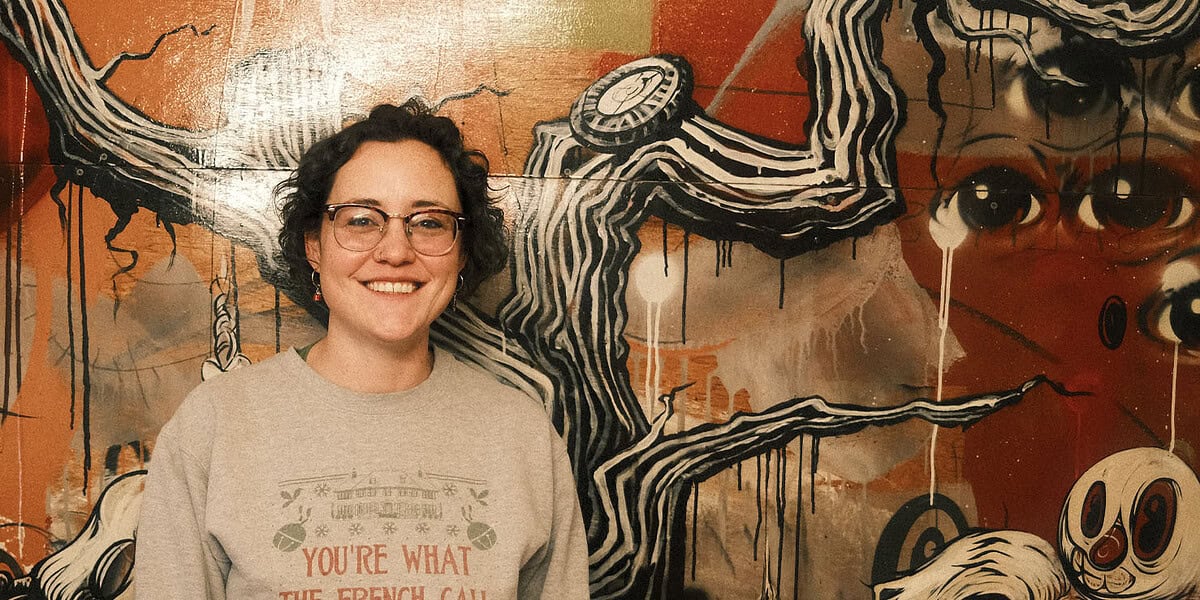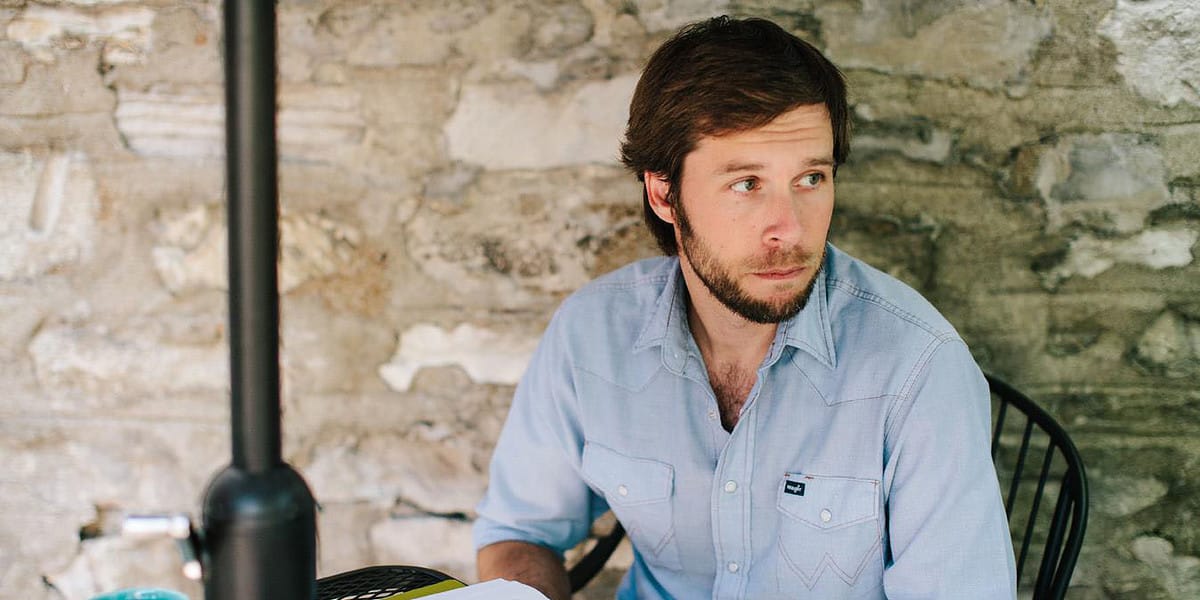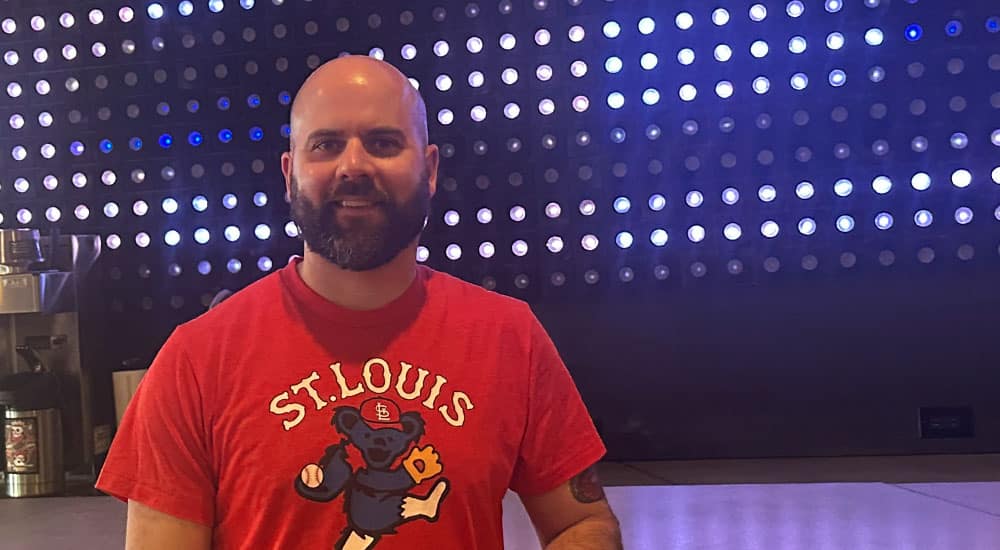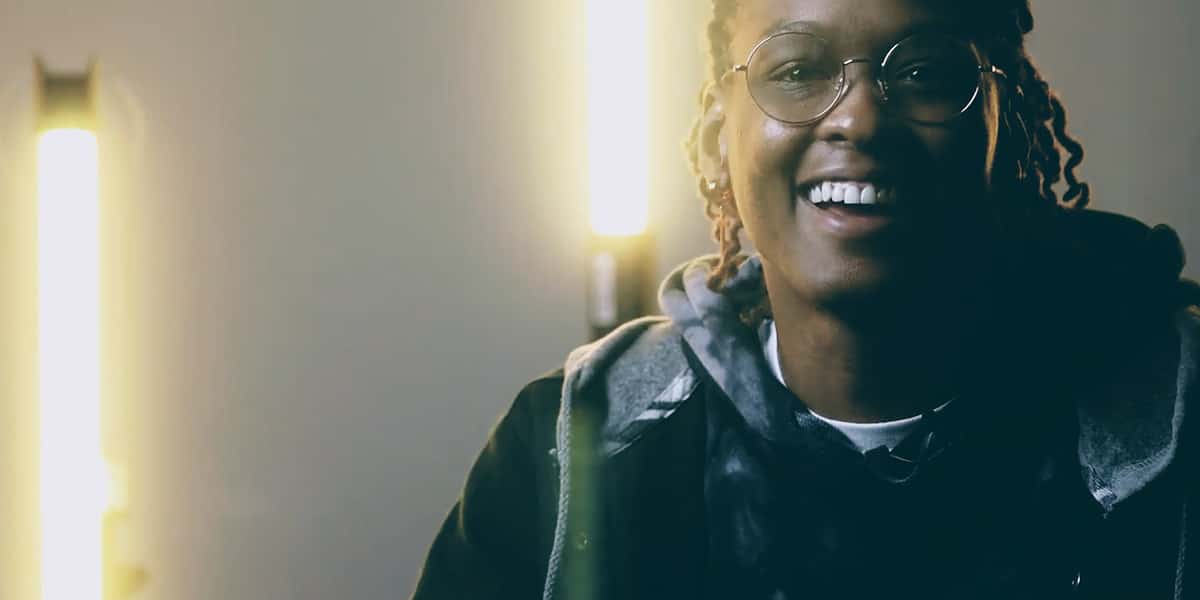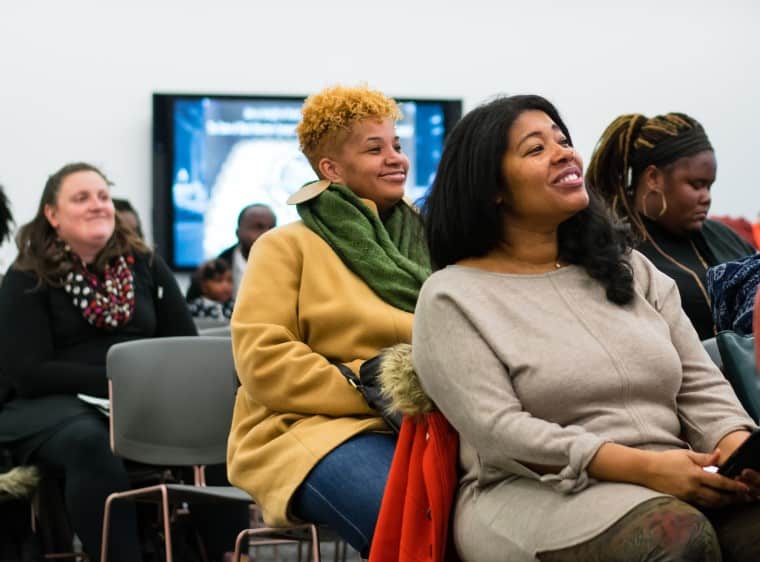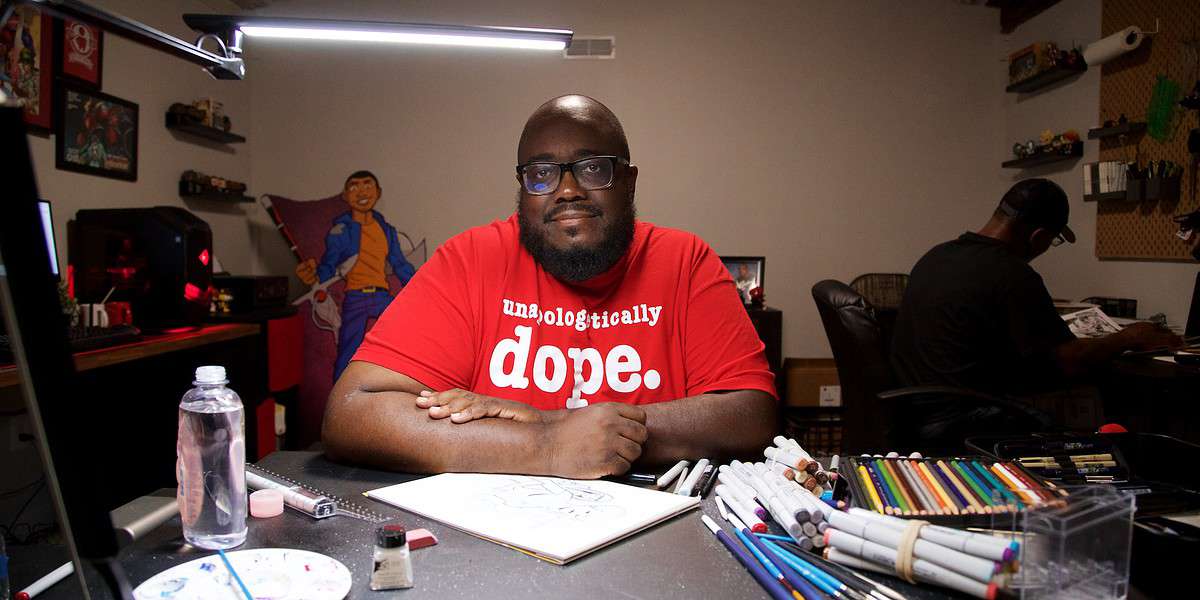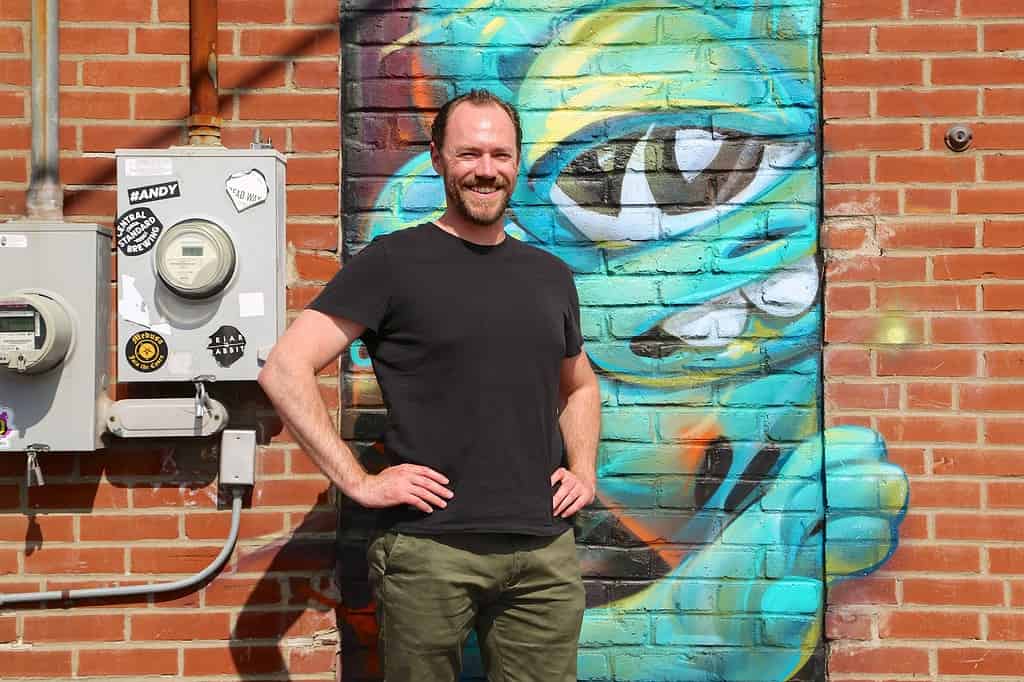
Zach Dyer, Senior Producer with Just Human Productions.
“I was at the University of Texas at Austin doing Latin American studies. I thought I wanted to be an anthropologist or sociologist or something like that. But I got to school and was like, ‘Oh, I don’t think I can do this academic thing. This is not for me.’ I have a lot of interests and they’re very broad. And that’s the thing I like about journalism. It’s nice to be able to jump from topic to topic and indulge those interests. When I’m putting together a story, I’ll do the interview, and when I turn the recorder off, I’ll leave the space. I’ll go to a coffee shop, to a bar, or wherever. And I’ll sit down and write by hand what it is that stood out to me about the interview I just had. That’s a helpful tool because it tells you immediately on a lizard-brain level what was actually interesting when I heard it. The creative process is to put it all together almost like a mosaic, because you have pieces that are true that you can’t change, but the way you assemble it can create a picture that leaves someone with a sensation or feeling that they wouldn’t have gotten if they were just looking at individual pieces.”
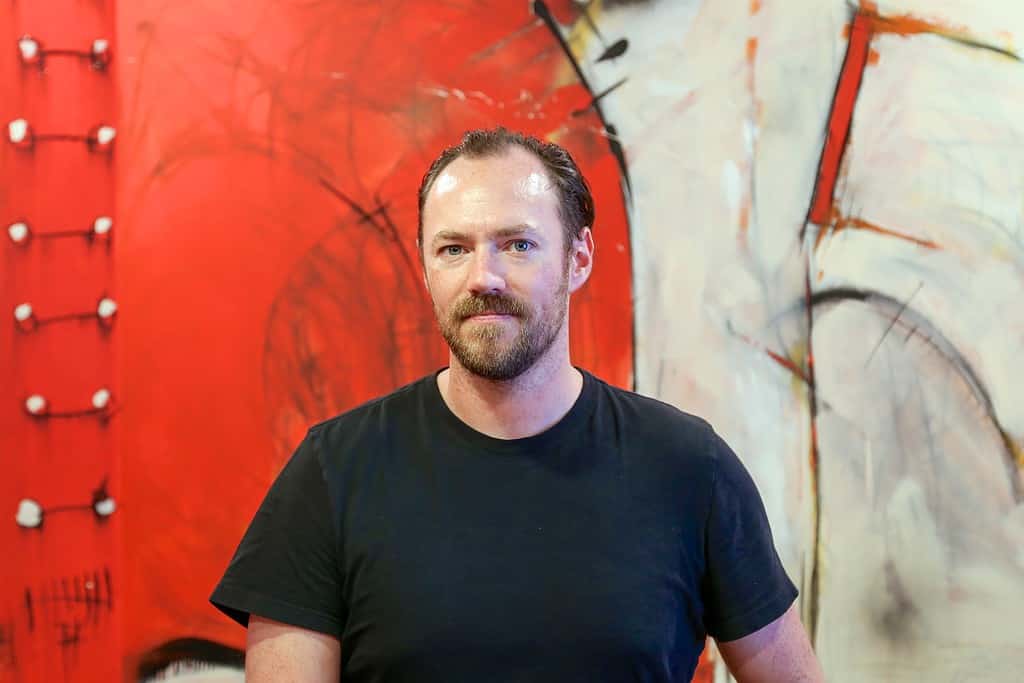
“My assistant and I were putting together this podcast episode about positive vaccination stories. I asked her to reach out to people we interviewed months ago who had long-term COVID effects. First, we wanted to see how they are doing, and second, if they’ve been vaccinated, have they seen any improvement or symptoms? So my assistant has a difficult conversation with one woman because the lady isn’t doing better. She is doing worse than when we first spoke with her, and she said, ‘I’m really worried.’ I’ve been very affected by the interview because this person is not doing well and I feel bad about even having asked how she was doing because there’s nothing we can do for that person to alleviate her symptoms.
I dealt with a similar thing when I used to report on refugees when I was in Central America. A lot of time, they come to you as the journalist and have outsized expectations about what speaking to you will mean for them individually. That can be difficult work because you want to have a story to tell, so you have to have people talk to you. But you also have to walk this line to have them understand that like, ‘I’m not the U.S. government. I’m not a fairy godfather who shows up and gets you across the border or fixes your COVID symptoms.’ So I have to stay far enough apart from the individuals to do this job, but at the same time, I have to also approach what they’re going through with empathy and compassion and be respectful of it.”
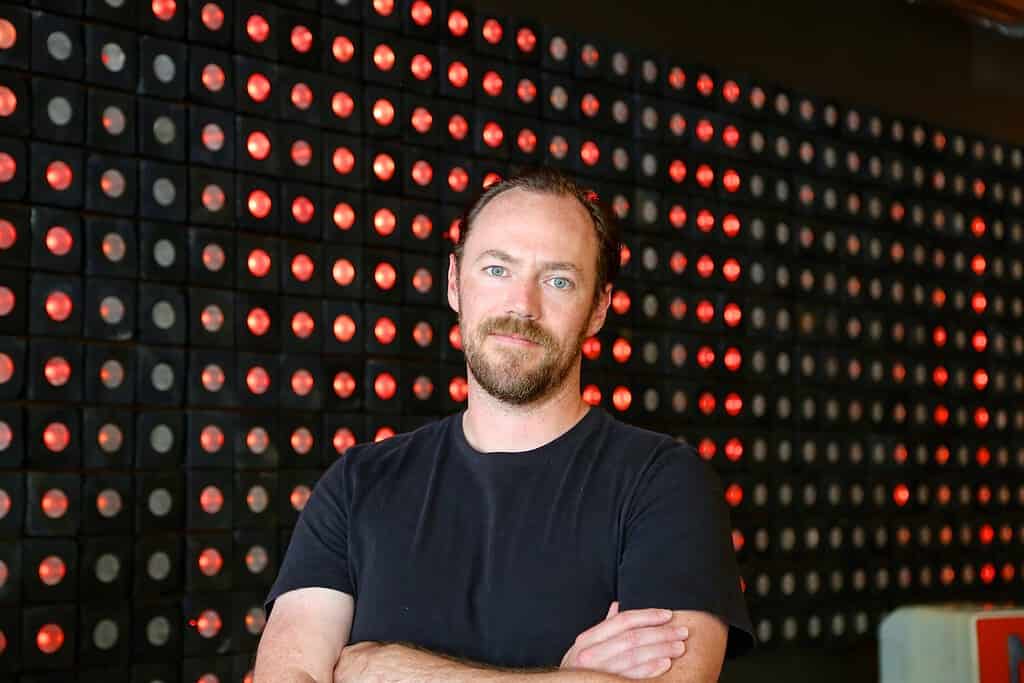
“I’m good at diagnosing problems without finding solutions. And I think I become more aware of how I’m feeling about that in the moments when I’m interviewing or editing for the podcasts I create. So I try to find some kind of balance, and if I can’t find it professionally, I try to create it in my personal life. When I was doing a lot of reporting on refugees at the border with COVID happening, the work was difficult and heavy. I had to be really mindful about how that affected me because I can’t spend all my time working and reporting and talking to people about those things and not have it imprint on me in some way. It will change you as a person. And I need to be cognizant about how I’m balancing that. There’s an old line that says, ‘if you gaze long into an abyss, the abyss also gazes into you.’ That’s why I’m focused on the next project I’m planning in the future. I want it to be something joyful, because I’ve done work that’s very serious and heavy. Part of me is addicted to the gravitas that comes with that kind of work, but as I’ve gotten older, I’m becoming more aware about how important it is to spend your time doing the work you like. Put it this way — I’m going to give peace a chance and try to do something more joyful to see how that feels.”
Here’s a link to one of the refugee stories Zach did via Los Angeles Times: https://www.latimes.com/world/mexico-americas/la-fg-costa-rica-cubans-20160121-story.html
Here’s a link to the episode Zach and the Just Humans Production did about positive outcomes frm vaccines: https://www.justhumanproductions.org/podcasts/s1e80-vaccine-joy-andy-slavitt-celine-gounder
